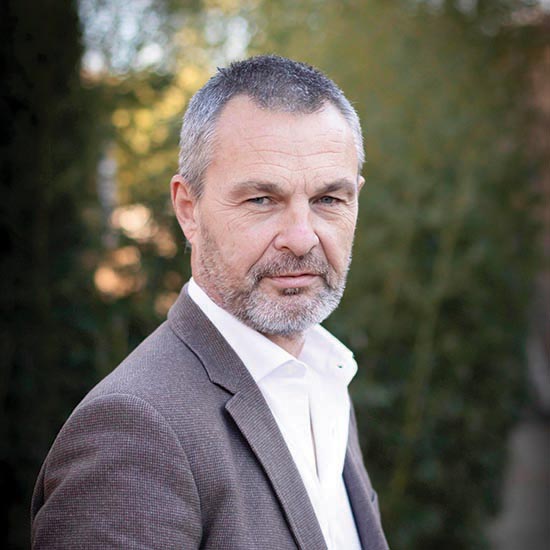 Lionnel FABER interview, since 1997 at Frayssinet.
Lionnel FABER interview, since 1997 at Frayssinet.
> IS THE TERM ORGANIC STILL AS MEANINGFUL AS EVER?
Yes, more than ever: there’s no denying the good agronomic results, the growth in sales, the demand from society, and the growing number of players looking to position themselves in this organic market in the broadest sense. It’s all coming together. As a reminder, back in 1990 we launched an advertising campaign entitled “Thank you organic! This method of fertilisation, which has been widely used in specialised crops for years, is attracting attention, and over time we’ve seen it make significant inroads into our other markets – gardening, green spaces, horticulture and even large-scale cultivation! It’s true that public messages about “eating better-eating organic, reducing water pollution, cutting IFTs, preserving the soil with the 4 ‰, limiting carbon impact…” help us and support our approach, but I’m firmly convinced that it’s the voice of reason that’s winning out, and we’re seeing this more and more in contact with the younger generations, who see this approach as a matter of course. That’s why we’re proud to have remained true to our convictions for 150 years.
> YOU MENTIONED ARABLE FARMING. WHAT ARE YOUR AMBITIONS IN THIS MARKET?
This is an area of development that we have identified very clearly and in which we have invested heavily over the last 2-3 years, particularly in official trials. The approach to this market is totally different from those we are already involved in, but on the strength of our experience with other crops and the discussions we have had with our distributor and seed company partners, we have both convictions and certainties that will lead us to market liquid and solid biostimulation solutions for maize in France and abroad from this year, via new brands such as Microsyr, Solizer, Insemo… In conjunction with our R&D department and our Field Crops Manager, we have given ourselves a further year on rapeseed and sunflower before going to market. It’s an activity that we’re approaching methodically, with caution and humility, but one in which we owe it to ourselves to be present as the leader in the organic market.
> HOW DO YOU SEE THE FUTURE OF YOUR JOB?
Very pragmatically! In all our markets, marketing and production models are undergoing radical change. The ecological transition is real and lasting. Consumers are increasingly demanding.
At a time when advice and sales are being separated, suppliers need to project the image of a reliable partner able to support their distributor and end-user customers through these changes. As a priority, our sales teams must have the capacity to provide sound technical expertise on all the soils and crops in which we are present, so that we can then offer solutions that are technically sound, economically advantageous and in line with consumer expectations in terms of quality and traceability.
